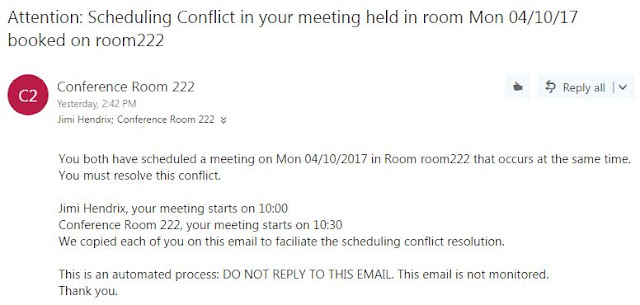Let's look at the messages.txt file to see what we can modify there.
The entire point is to separate out the text sent to meeting organizers to inform them of conflicts.
Separating this from the application gives you the ability to easily customize it for your workplace social environment or to translate it into a different language.
Any text editor will do, and note that there are specified place holders, such as "(1)" for Conference Room Name that are reserved for the cmdlet.
The text in comments tells you the circumstances that generate the message. For example:
#Message to notify One organizer (the one that came in after the booking was made -or- trumped by a VIP)
The vips.txt file is the list of the primary SMTP addresses of VIPs who get automatic preference when you invoke the VIPsGetBookingPreference flag.
As you can see from this example, Janis Joplin will get preference over all other users in that scenario.




























